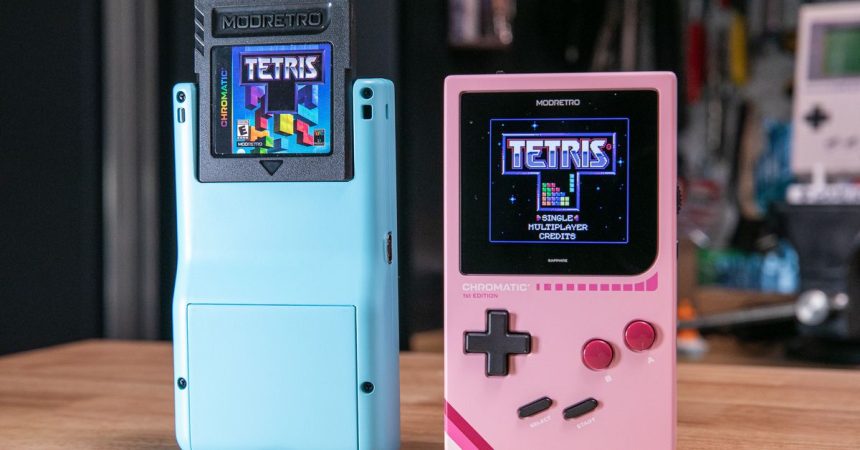The ModRetro Chromatic, a high-end Game Boy remake, presents a complex dilemma for consumers. While objectively a superior iteration of the classic handheld, its connection to defense contractor Anduril, and founder Palmer Luckey, raises ethical concerns. Luckey, a controversial figure with a passion for military technology and outspoken political views, infuses the Chromatic with a baggage that transcends its nostalgic appeal. This review explores the tension between appreciating the Chromatic’s exceptional hardware and grappling with the implications of supporting a company deeply involved in weapons development.
The Chromatic excels in its faithful recreation of the Game Boy experience. Its robust metal construction, vibrant IPS display, and tactile buttons evoke a sense of nostalgia while addressing the shortcomings of the original hardware. The deliberate omission of modern features like save states reinforces the authentic gameplay experience, heightening the challenge and reward of classic titles. The Chromatic’s design philosophy prioritizes a pure, unadulterated Game Boy experience, contrasting with the more modernized approach of competitors like the Analogue Pocket. This focus on authenticity, however, comes at a price, both literally and figuratively.
Despite its premium price tag, the Chromatic’s limitations become apparent. The lack of support for Game Boy Advance games restricts its library, and the relatively low volume of the headphone jack hinders its usability in noisy environments. While the durable construction withstands minor drops, it falls short of the advertised “indestructible” claim, succumbing to damage under more extreme stress tests. Furthermore, the promised USB-C video output and rechargeable AA battery charging functionalities remain unfulfilled. These drawbacks, while not deal-breakers, detract from the overall value proposition, particularly considering the high cost of acquiring original Game Boy and Game Boy Color cartridges.
Beyond the hardware itself, the Chromatic carries the weight of its association with Palmer Luckey and Anduril. Luckey’s personal history, from modding Game Boys as a teenager to founding Oculus Rift and subsequently Anduril, reflects his evolving interests from gaming to military technology. His outspoken advocacy for closer ties between tech companies and the military, coupled with his political affiliations and controversial statements, casts a shadow over the Chromatic. This connection forces consumers to confront the ethical implications of supporting a company involved in the development of potentially harmful technologies, even if that support comes through the purchase of a seemingly innocuous gaming device.
The Chromatic’s existence as a passion project of a defense contractor CEO raises questions about the intersection of personal interests and corporate ventures. While ModRetro, Luckey’s original modding forum, focused on repurposing existing hardware, the Chromatic is a bespoke creation, reflecting a shift in his approach. This shift mirrors Anduril’s strategy of leveraging commercial supply chains for weapons manufacturing, blurring the lines between consumer technology and military applications. The Chromatic, therefore, becomes more than just a Game Boy remake; it symbolizes the complex relationship between the gaming industry and the defense sector.
Ultimately, the decision to purchase the Chromatic becomes a personal one, weighing the undeniable appeal of its hardware against the ethical concerns surrounding its origins. While the Chromatic offers a superior Game Boy experience, it also serves as a reminder that even seemingly innocuous products can be entangled in complex political and ethical considerations. Consumers must grapple with the implications of supporting a company whose values may not align with their own, even if the product itself evokes nostalgia and provides genuine enjoyment. The Chromatic’s existence challenges the notion of separating consumption from ethics, forcing a deeper examination of the companies and individuals behind the products we choose to buy.



